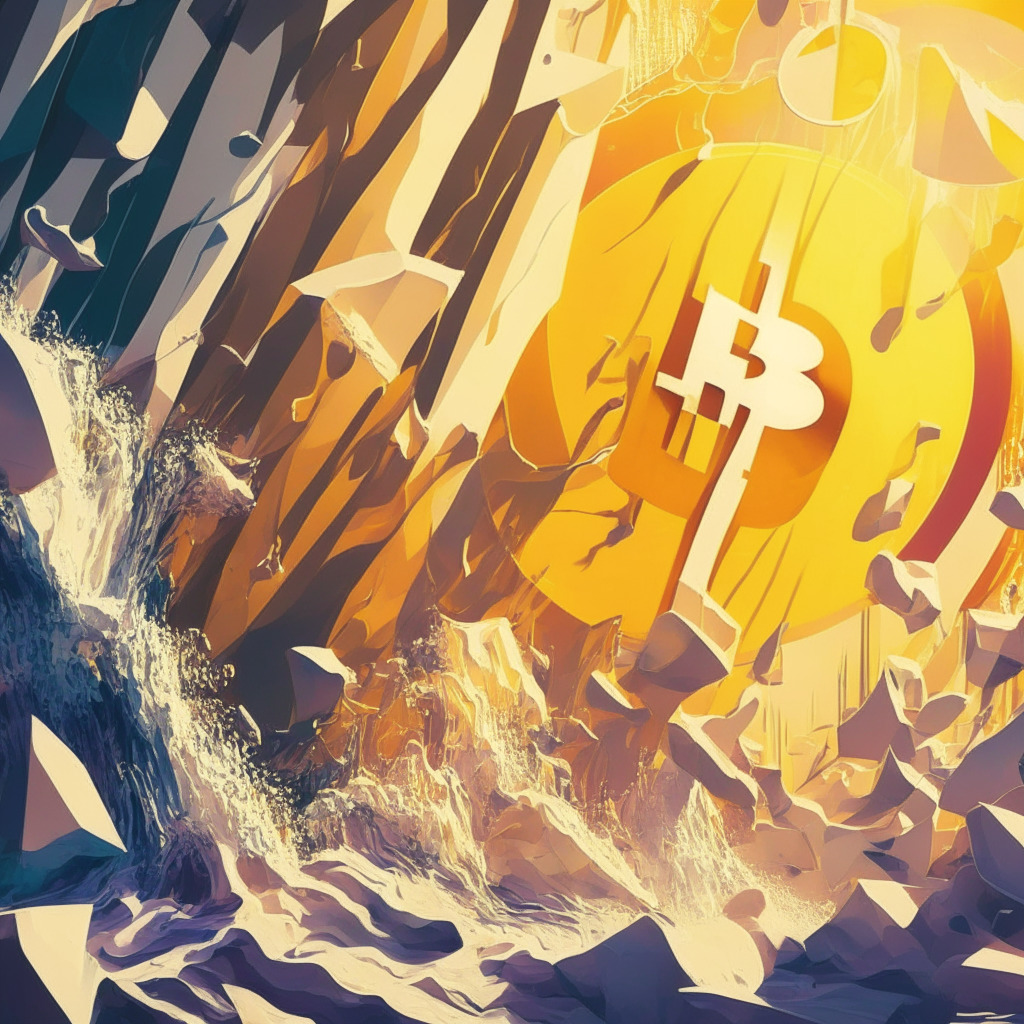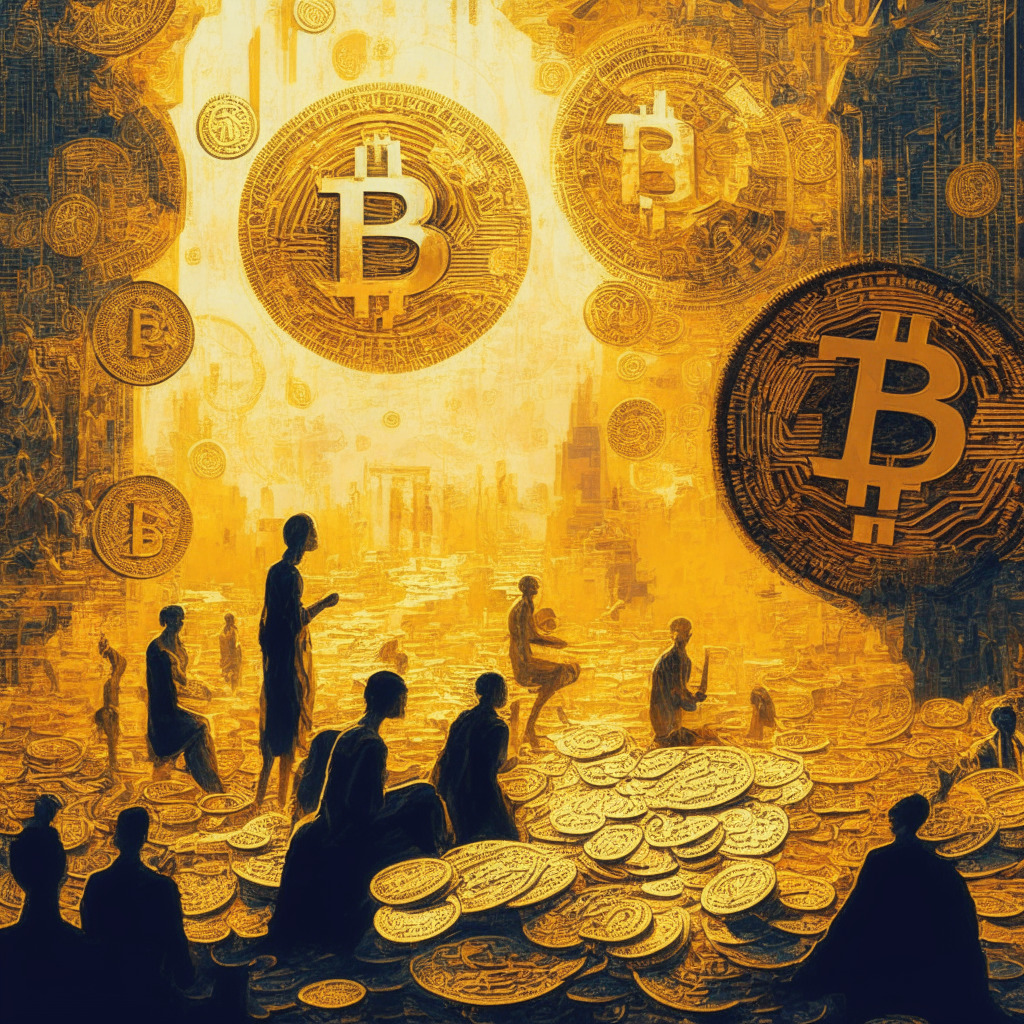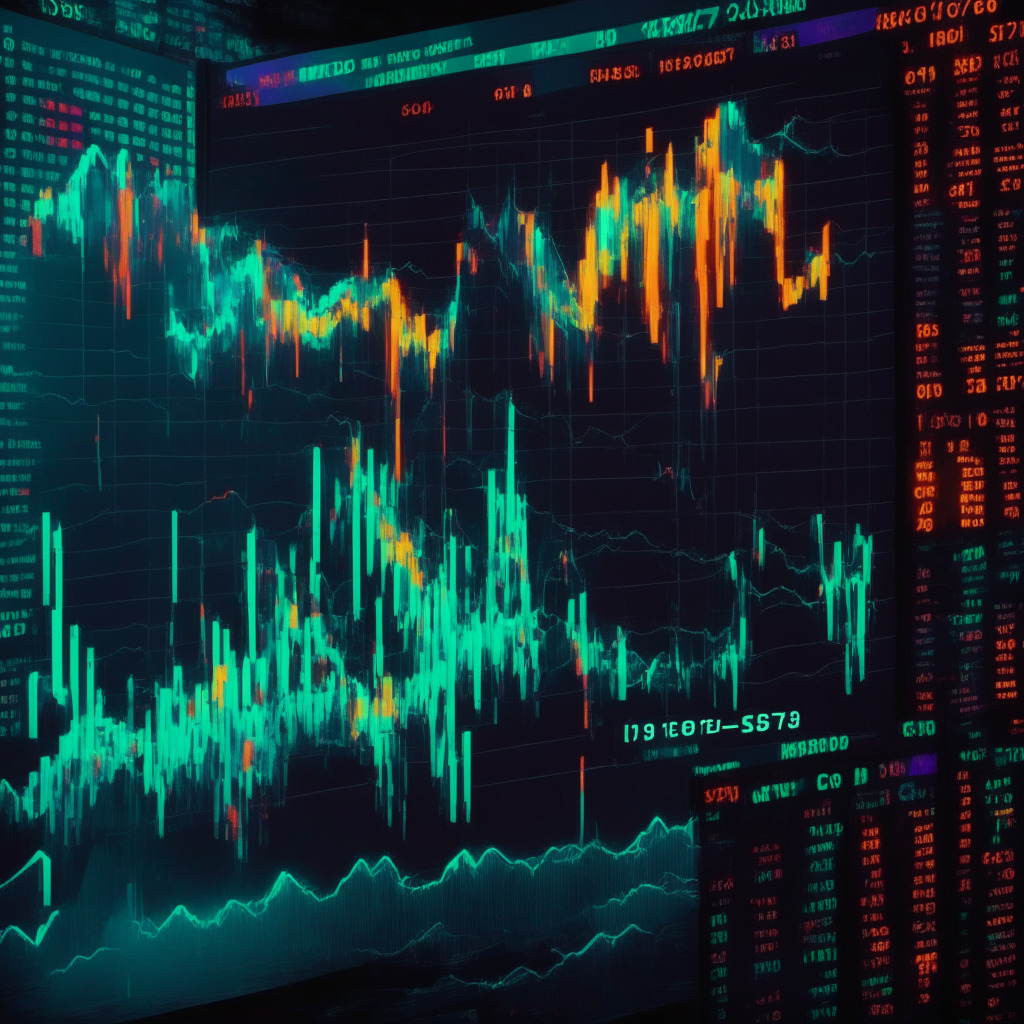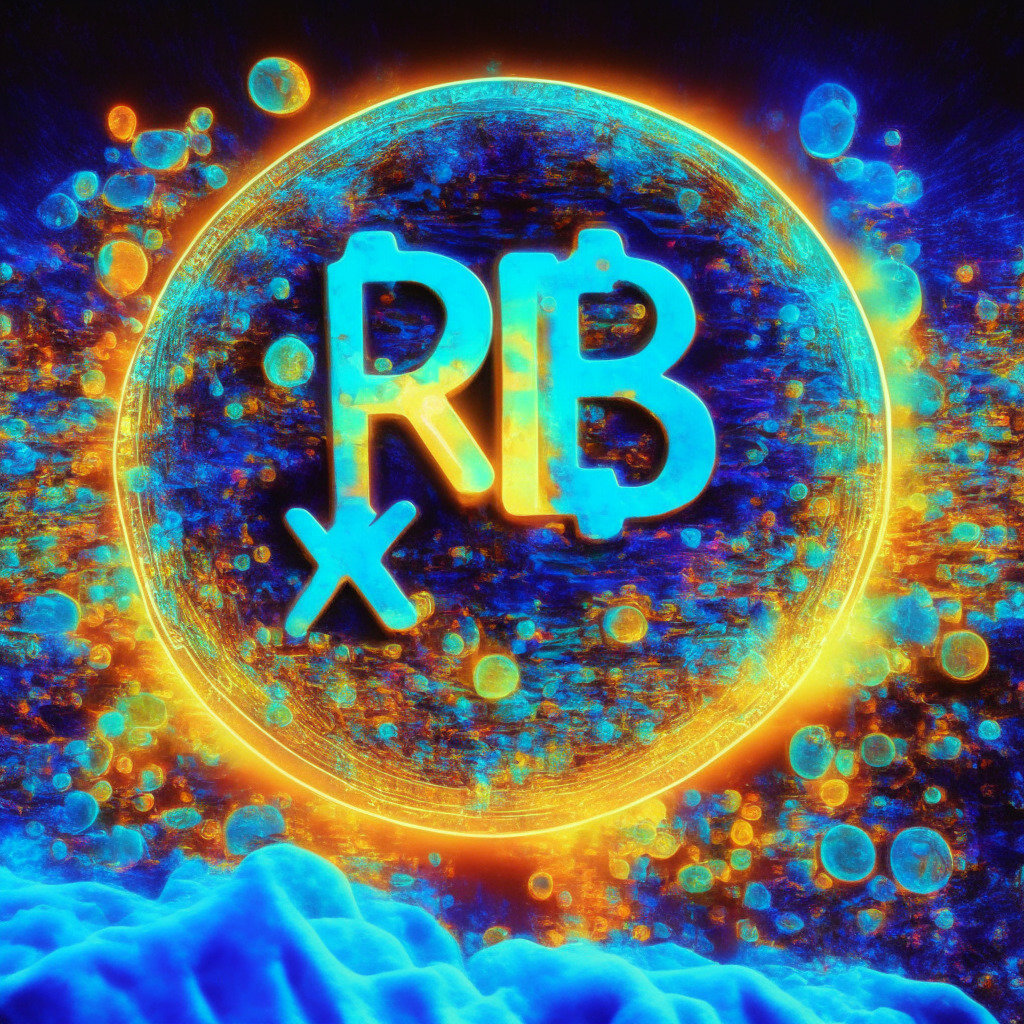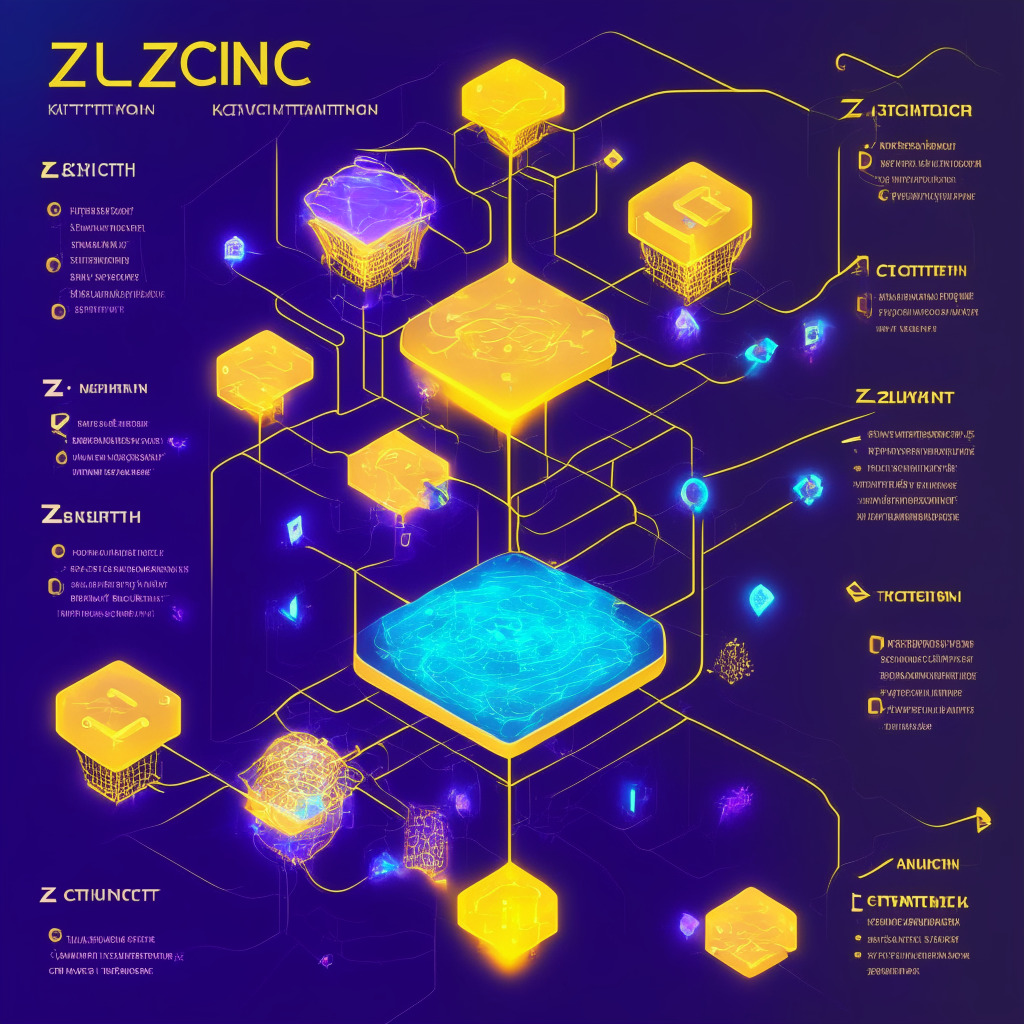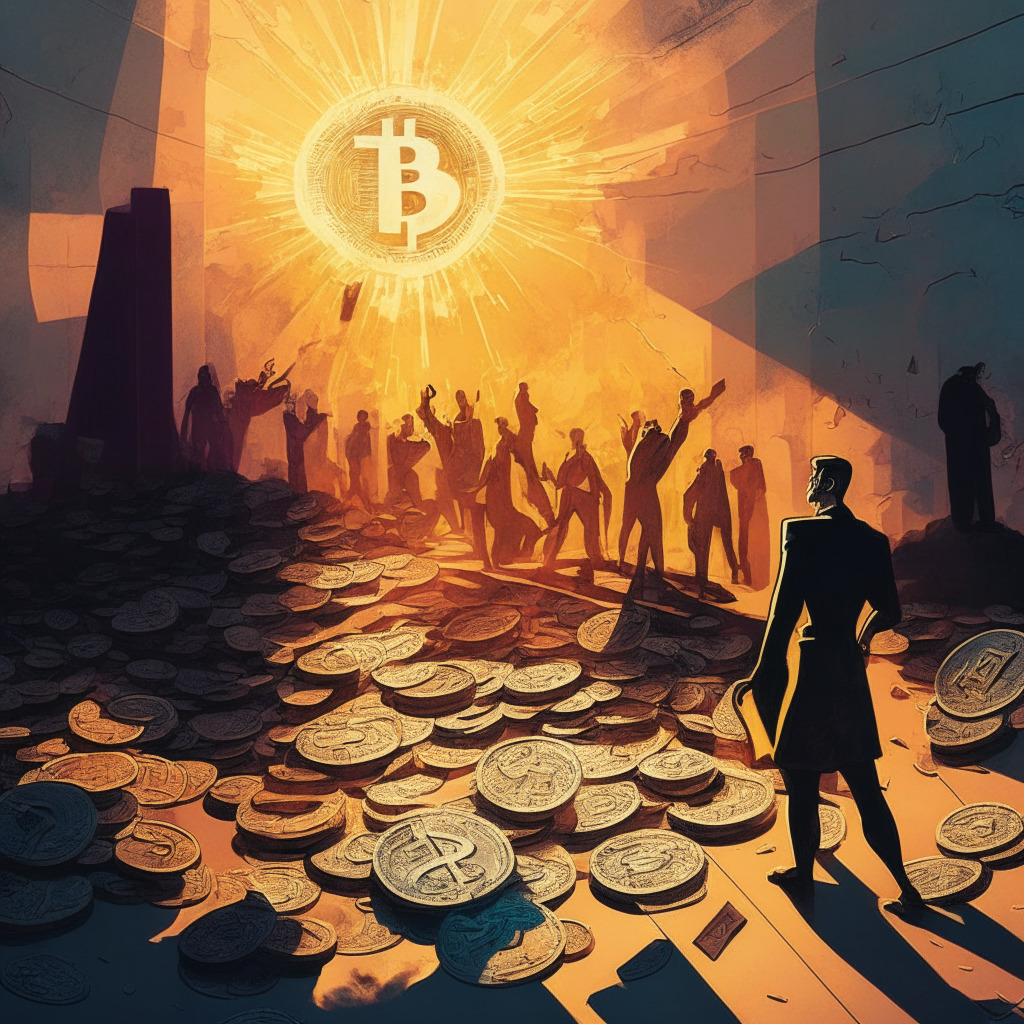Celsius Network significantly alters its ETH staking strategy, causing an increased congestion in Ethereum’s validator activation queue. This move involves moving $745 million worth of ETH into staking contracts after redeeming $813 million from Lido Finance, impacting Ethereum’s ecosystem and adding pressure on the network.
Day: June 2, 2023
Mixed Trends in Crypto Market: Exploring External Factors & Navigating Risks
The recent market overview reveals mixed trends in the cryptocurrency space, with coins like BTC and ETH showing positive growth, while BNB and BCH experience declines. As crypto markets are volatile and influenced by external factors, investors should research, diversify portfolios and adopt a cautious approach to effectively navigate this dynamic world.
Ripple Effects of FTX Collapse: Analyzing Industry and Regulatory Impacts
FTX’s collapse led to a ripple effect on crypto companies like Silvergate Bank, BlockFi, and Genesis Global Capital, debanked crypto firms, and a regulatory crackdown. Binance considers boosting compliance, while Tether plans sustainable BTC mining in Uruguay. Nvidia, Microsoft, and other tech companies advance AI technology and NFT marketplace, Tabi raises $10 million for gaming ecosystem development.
Bitcoin’s Stability Amid Economic Turmoil: Cryptos Defy Market Fluctuations & Regulation Woes
Amidst a rollercoaster week filled with debt limit deals and complicated job reports, Bitcoin remains stable, trading at about $27,180, up 1.2%. Edward Moya attributes this stability to discussions surrounding the Securities Clarity Act, which may offer classification guidelines for tokens. Despite ongoing market fluctuations and regulatory uncertainty, Bitcoin’s resilience remains noteworthy.
Pathway to Digital Commodities: Balancing Innovation and Regulatory Compliance in Crypto
The draft bill by the United States House Financial Services Committee and House Agriculture Committee proposes a pathway for certain crypto assets to be labeled as digital commodities, offering regulatory clarity for crypto firms. However, it also raises concerns over digital assets’ classification and potential limitations due to increased regulatory measures.
Arbitrum’s Price Surge: Behind the Rally and Potential Headwinds
ARB’s price rose by 9% as US Senate voted to raise the debt limit, sparking market interest. Trader Andrew Kang’s $1M stablecoin deposit into Arbitrum pools fueled speculation of leveraging ARB. However, potential headwinds and a bear flag pattern may hinder ARB’s rally.
Brazilian Crypto Exchange Milestone: What It Means for the Industry and Emerging Challenges
Brazil’s largest crypto exchange, Mercado Bitcoin, has been granted a license by the country’s central bank as a payment institution, paving the way for a more integrated experience and business expansion. This development signals a potential shift towards broader acceptance and regulation, with plans to introduce a crypto payments card and offer a range of financial services combining crypto and traditional financial options.
DeFi Exit Scams Surge in May: Uniswap DAO Rejects Fee Proposal & Jimbos Protocol’s Bounty Offer
In May, over $45 million was lost to exit scams in the DeFi world, while exploits on DeFi protocols netted under $19.7 million. Uniswap DAO rejected a plan to charge liquidity provider fees, and Jimbos Protocol offered an $800,000 bounty following a failed negotiation with a hacker. The total value locked in DeFi protocols exceeded $50 billion again in late May.
Uniswap’s V3 Fee Switch Debated: Failed Proposal, Legal Concerns, and Timing Issues
A recent DAO community poll on a proposed Uniswap V3 fee switch by GFX Labs ended in a split vote, delaying the initiative despite majority support. The proposal sought to charge liquidity providers a fraction of fees across Uniswap V3 pools and redistribute earnings to the UNI community. The failed vote was attributed to incorrect structuring, but consensus for future fee switches appears to be growing.
Balancing Financial Security and Privacy: The Tornado Cash Sanctions Debate
The Blockchain Association supports Coin Center’s lawsuit against the US Treasury over its sanctions against Tornado Cash, arguing that the sanction raises regulatory and constitutional concerns. The case outcome could set a precedent for privacy-protecting services in the digital asset industry, emphasizing the need to balance financial security and individual privacy.
Evertas Crypto Insurance Expansion: Boon for Blockchain and Mining Operations
Evertas, a crypto insurance underwriter, has expanded its offerings by increasing coverage limits to $420 million and including mining operation coverage up to $200 million per policy, making it the highest available in the market. The firm aims to provide accessible and comprehensive insurance to the growing blockchain and cryptocurrency sectors.
Crypto Market Struggles Amid Equities Rally: Analyzing Pros, Cons, and Conflicts
Cryptocurrency markets remain subdued, with interest lacking due to the absence of institutional buying. Investors should watch for strong recovery signs in Bitcoin and altcoins. Meanwhile, Ether’s rebound potentially indicates a sentiment shift as cryptocurrency markets face uncertainty and caution.
Draft Bill May Reshape Crypto Regulation: Pros, Cons, and Main Conflict
Senior House Republicans introduced a draft bill aiming to establish a concise framework for digital assets in the U.S., allowing regulated crypto firms to argue for commodity classification. The legislation would also introduce digital commodity exchanges with oversight by the Commodity Futures Trading Commission. However, it currently lacks support from Democrats and faces challenges in achieving consensus.
Litecoin Price Surge: Analyzing Factors, The Halving Event, and Possible $300 Future
Litecoin has experienced significant value growth, trading just below $95 with an 8% increase in the last seven days. This surge has been attributed to multiple factors, including the upcoming “halving” event and a recent surge in transaction activity on the Litecoin blockchain. The strong technical support, excellent fundamentals, and increased market trust contribute to the cryptocurrency’s growth potential.
XRP Outshines BTC and ETH Despite Legal Woes and Token Surge: Fleeting Gains or True Potential?
In a surprising turn of events, Ripple’s native crypto, XRP, has outperformed market leaders Bitcoin and Ethereum in the past 30 days, registering a 13% gain despite ongoing legal challenges and the addition of one billion XRP tokens to the circulating supply.
Regulating Crypto Assets as Securities: Balancing Innovation and Accountability
A European Parliament study proposes that all crypto assets be considered transferable securities by default, suggesting shifting the burden of regulatory compliance from national regulators to entities directly involved in crypto trading. This aims to streamline the process while ensuring accountability, while also aligning with US practices. However, concerns arise about potentially stifling innovation and affecting smaller players in the industry.
XRP Holds Strong Above $0.50: Analyzing its Future amid Ripple’s Lawsuit Developments
XRP, the native cryptocurrency of the XRP Ledger, has maintained its position above $0.50, driven by positive developments in Ripple’s ongoing lawsuit against the SEC. Investors show increasing confidence in a positive outcome, potentially boosting the company’s payment business and generating greater demand for XRP. However, diversification and caution are essential in crypto investing.
Demand for XRP Relisting on US Exchanges: Legal Precedent and Community Outcry
This article discusses the demand to relist XRP on US-based crypto exchanges and the legal precedent concerning its delisting. Uphold, a US crypto exchange still offering XRP trading, states no legal precedent exists for not listing the token.
Dogecoin Price Battle: Analyzing Breakout Scenarios and Future Trends
The Dogecoin price has experienced a 31.2% drop, now hovering around $0.072 and moving sideways between $0.075 and $0.0692. A decisive breakout from this range could influence its future direction. The 24-hour trading volume stands at $156.5 million, indicating a lack of significant movement between buyers and sellers.
Marathon’s 77% Bitcoin Mining Surge: Proprietary Software or Untapped Capacity?
Bitcoin miner Marathon Digital Holdings experienced a 77% spike in their Bitcoin mining production in May, attributed to its proprietary software, an increased hash rate, rising transaction fees, and the growing popularity of Ordinals protocol. However, maintaining a balanced perspective and managing expectations is advised.
Federal Reserve’s Next Move: Impact on Bitcoin and Market Volatility
The jobs report and Federal Reserve’s potential rate hikes, alongside a recently passed debt ceiling deal, play crucial roles in shaping the overall market mood. With the VIX index at a 52-week low, cheaper options prices and macroeconomic events could significantly impact markets.
Blockchain vs OFAC: Tornado Cash Sanctions Threaten Privacy and Innovation in Crypto World
The Blockchain Association has backed Coin Center’s lawsuit against the Treasury Department and OFAC, arguing that sanctions against Tornado Cash hinder Americans’ ability to transact privately on the Ethereum network. They stress that regulatory actions should target malicious actors, not technology, acknowledging the legitimate uses for privacy-enhancing tools like Tornado Cash. This lawsuit highlights the critical balance between innovation, privacy, and regulation in the evolving blockchain future.
Bipartisan Efforts for Clear Digital Asset Regulations: Can SEC and CFTC Find Common Ground?
Two Republican lawmakers from the US House Financial Services Committee and the House Agriculture Committee are working on a discussion draft to regulate digital assets, aiming to establish clarity in determining when a digital asset is considered a security. The draft legislation, “Digital Asset Market Structure Discussion Draft,” proposes a process for treating digital assets and seeks a unified path for SEC and CFTC jurisdictions.
SEC-Registered Crypto Exchanges: Boon or Bane for Digital Assets Future?
A proposed bill could allow crypto exchanges to register with the U.S. SEC, enabling trading of digital securities, commodities, and stablecoins in one place. However, it faces caveats such as lack of Democratic support and ongoing SEC authority over asset jurisdiction.
Integrating Liquid Staking into zkSync Era: Exploring Advantages and Overcoming Challenges
Era’s integration with Rocket Pool allows users to stake ether (ETH) while holding rETH and receiving rewards automatically. Though facing challenges, Rocket Pool’s research team explores zk proof technology for potential advantages like lower costs, increased efficiency, and a streamlined system.
Billion-Dollar Token Bridge Thefts: Navigating Security in a Multi-Chain Era
2022 saw over $2 billion in token bridge thefts due to vulnerabilities in security measures. This article discusses common security breaches, including social engineering attacks, private key issues, and smart contract vulnerabilities, and highlights how experts are developing stronger security protocols for a secure multi-chain future.
Stablecoins: A Solution to Crypto’s Banking Crisis Amid Operation Chokepoint 2.0
Stablecoins may counter the impact of Operation Chokepoint on the crypto sector, providing a solution to the US banking crisis facing crypto companies. Leveraging stablecoins can minimize bank dependency and establish an autonomous parallel financial system, despite potential risks and regulatory challenges.
Bloomberg Analyst’s Bearish Outlook on Bitcoin: Causes and Potential Market Impact
Bloomberg analyst Mike McGlone recently released his June Crypto Outlook report, forecasting potential downfall for Bitcoin and the entire crypto market. He points to factors such as a possible US recession, bear market for equities, and high interest rate competition as potential triggers for decline.
Taurus, Polygon, and the Rising Popularity of Asset Tokenization in Europe
Digital asset infrastructure provider Taurus integrates with Polygon blockchain, enabling clients to issue digital securities. With tokenization gaining popularity, Taurus draws interest from major banks like Credit Suisse and Deutsche Bank, blending traditional finance with innovative Web3 solutions.
Declining Market Share of Binance: Implications for Crypto Exchanges and Future Strategies
Binance’s market share has dropped to its lowest level in eight months, raising questions about the future of crypto exchanges. Factors like regulatory scrutiny, staff layoffs, and centralized exchange vulnerabilities contribute to the decline, emphasizing the importance of regulatory compliance and decentralization in the evolving crypto landscape.
Decentralization vs Centralization: Managing AI Extinction Risks with Crypto Principles
The crypto industry’s decentralization mindset could play a role in AI risk mitigation, addressing concerns of centralization and monopolization. A balance between national government regulation, international treaties, and decentralized governance models is needed for effective collaboration between governments and the crypto industry, ensuring AI technology develops safely.
Uninsured Dangers: Digital Payment Apps, Crypto Exchanges, and the FDIC’s Role in Protecting Funds
The Consumer Financial Protection Bureau (CFPB) recently warned that digital payment apps like PayPal and Venmo, as well as crypto exchanges, lack FDIC insurance, posing risks to users’ funds. The FDIC has been targeting crypto companies making misleading claims about their insured status, emphasizing that no crypto exchanges are insured by the FDIC. Users must be cautious of potential risks associated with these platforms.

